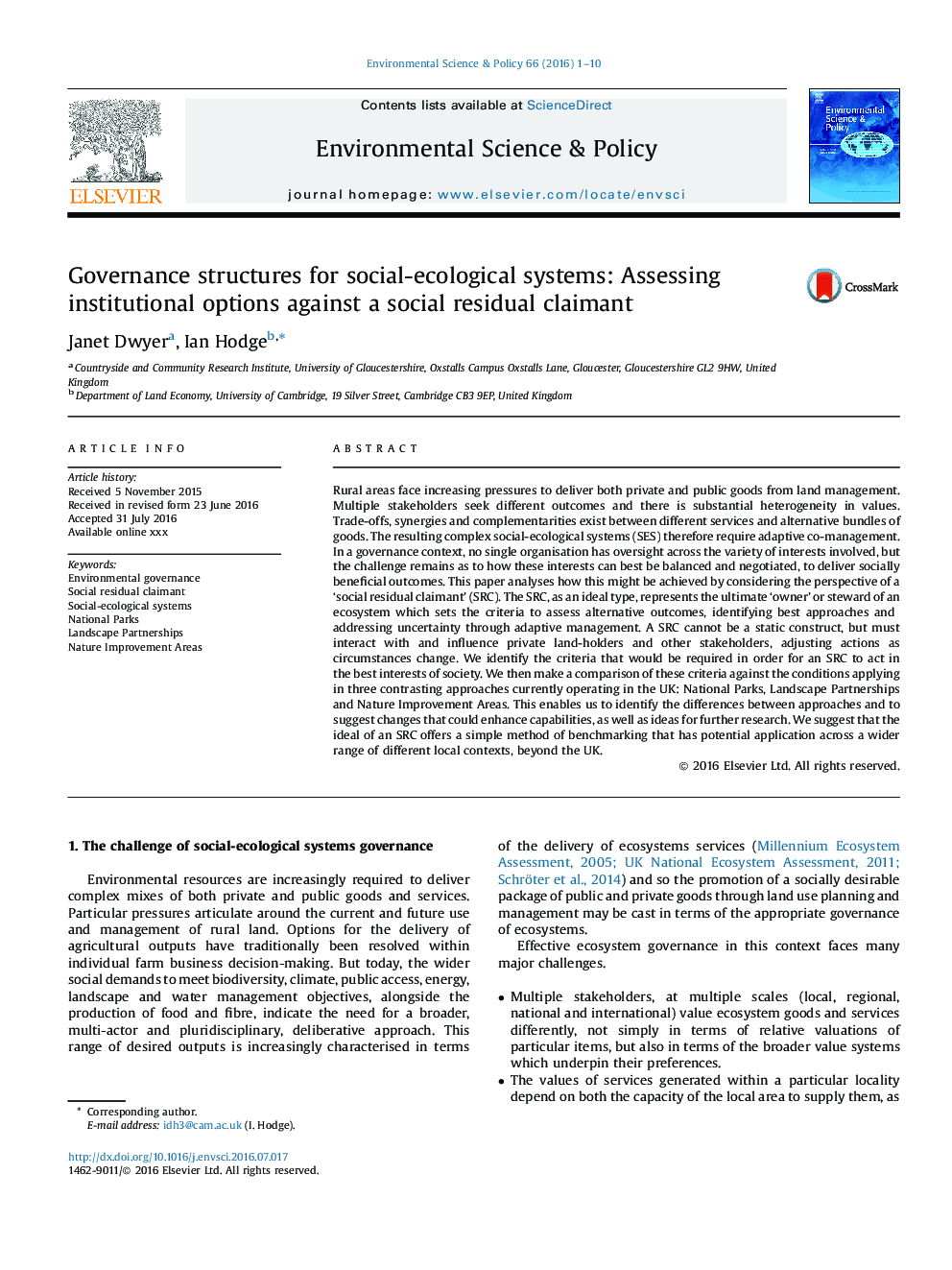| Article ID | Journal | Published Year | Pages | File Type |
|---|---|---|---|---|
| 1053400 | Environmental Science & Policy | 2016 | 10 Pages |
•Ideal governance may be conceptualised as delivered by a social residual claimant.•Governance proliferates institutions with no single agency having oversight.•Partnerships are tasked to deliver public benefit not their own collective interest.•Short-termism undermines building social capital and long term planning.
Rural areas face increasing pressures to deliver both private and public goods from land management. Multiple stakeholders seek different outcomes and there is substantial heterogeneity in values. Trade-offs, synergies and complementarities exist between different services and alternative bundles of goods. The resulting complex social-ecological systems (SES) therefore require adaptive co-management. In a governance context, no single organisation has oversight across the variety of interests involved, but the challenge remains as to how these interests can best be balanced and negotiated, to deliver socially beneficial outcomes. This paper analyses how this might be achieved by considering the perspective of a ‘social residual claimant’ (SRC). The SRC, as an ideal type, represents the ultimate ‘owner’ or steward of an ecosystem which sets the criteria to assess alternative outcomes, identifying best approaches and addressing uncertainty through adaptive management. A SRC cannot be a static construct, but must interact with and influence private land-holders and other stakeholders, adjusting actions as circumstances change. We identify the criteria that would be required in order for an SRC to act in the best interests of society. We then make a comparison of these criteria against the conditions applying in three contrasting approaches currently operating in the UK: National Parks, Landscape Partnerships and Nature Improvement Areas. This enables us to identify the differences between approaches and to suggest changes that could enhance capabilities, as well as ideas for further research. We suggest that the ideal of an SRC offers a simple method of benchmarking that has potential application across a wider range of different local contexts, beyond the UK.
